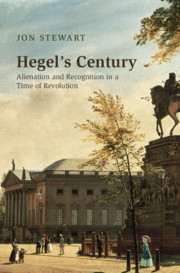Book contents
- Hegel’s Century
- Hegel’s Century
- Copyright page
- Dedication
- Contents
- Acknowledgments
- Preface
- Introduction
- Part I The Beginning
- Part II The First Generation
- Part III The Second Generation
- 6 Marx’s View of Religious and Political Liberation
- 7 Kierkegaard’s Analysis of the Forms of Despair and Alienation
- 8 Dostoevsky’s Criticism of Modern Rationalism and Materialism
- 9 Bakunin’s Theory of Anarchy
- 10 Engels’ Criticism of Feuerbach and Classical German Philosophy
- 11 Hegel’s Long Shadow in the History of Nineteenth-Century Philosophy
- Bibliography
- Index of Names
- Subject Index
11 - Hegel’s Long Shadow in the History of Nineteenth-Century Philosophy
from Part III - The Second Generation
Published online by Cambridge University Press: 14 October 2021
- Hegel’s Century
- Hegel’s Century
- Copyright page
- Dedication
- Contents
- Acknowledgments
- Preface
- Introduction
- Part I The Beginning
- Part II The First Generation
- Part III The Second Generation
- 6 Marx’s View of Religious and Political Liberation
- 7 Kierkegaard’s Analysis of the Forms of Despair and Alienation
- 8 Dostoevsky’s Criticism of Modern Rationalism and Materialism
- 9 Bakunin’s Theory of Anarchy
- 10 Engels’ Criticism of Feuerbach and Classical German Philosophy
- 11 Hegel’s Long Shadow in the History of Nineteenth-Century Philosophy
- Bibliography
- Index of Names
- Subject Index
Summary
This chapter looks at the enduring influence of Hegel on the philosophy of the nineteenth century, especially his ideas of alienation and recognition. Variations of these ideas can be found explicitly or implicitly in all of the thinkers examined in this study and appear in a number of different contexts in addition to philosophy: religion, history, politics, literature, poetry, etc. This shows that the seed that Hegel planted in The Phenomenology of Spirit and later in his Berlin lectures in the 1820s continued to grow through the subsequent decades. This chapter shows that, starting with him, all the thinkers discussed in this study believed there to be an important crisis in their time. An overview is given of their different diagnoses of the nature of this crisis and its causes. A key feature in all of these is the role of alienation in modern life in various spheres: religion, politics, economics, art, etc. Likewise, an account is provided of the various solutions they proposed. Finally, an attempt is made to demonstrate that these issues carry over into the twentieth century, where they are taken up and further expanded upon by philosophers and social scientists.
- Type
- Chapter
- Information
- Hegel's CenturyAlienation and Recognition in a Time of Revolution, pp. 282 - 301Publisher: Cambridge University PressPrint publication year: 2021

